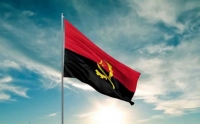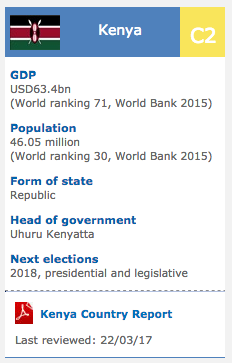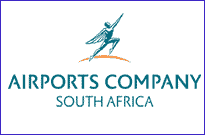Angola: Angola Outlook for 2016-17
2016/05/28

The county (Angola) is situated in Southern Africa on the South Atlantic Ocean, with Namibia The county (Angola) is situated in Southern Africa on the South Atlantic Ocean, with Namibia and Democratic Republic of the Congo as neighbor.
It has borders with Congo (Kinshasa) for 2511km, Congo (Brazzaville) for 201km, Namibia for 1376km and Zambia for 1110km.
Land in Angola is narrow coastal plain rises abruptly to vast interior plateau.
The climate is semi arid in south and along coast to Luanda in the north has cool and dry season (May to October) and hot and rainy season (November to April).
African languages.
OVERVIEW
Economic Overview
Over the completed year, the Angolan economy has shown signs of slowing down. Gross Domestic Product (GDP) grew by 2.8% in 2015, down from 4.8% in 2014, mostly as a result of the drop in oil prices. The decline in international crude oil price has had a substantial impact on budget balances. The average price for Angolan crude was $104 in the third quarter of 2014, declining to $85 in the fourth quarter. Prices continued to drop in 2015 with the average oil price at $52, a decline of approximately 48% in 12 months. Prices dropped even further in early 2016, averaging $30 in the initial two months of the year.
Angolan oil production has fluctuated around 1.7 million bps/day in the last five years while the long term goal target is 2 million bps/day. Next reaching its peak in 2010 – 1.786 million bps/day – production fell slightly to 1.660 million bps/day in 2014. Despite the fall of oil prices, production increased by 5.7% in 2015 compared to a decline of about 2.6% in 2014.
Increase in the non-oil economy as well slowed in 2015 on account of delays in the execution of key electricity and industrial investments. Non-oil increase is nevertheless estimated to have reached 1.3%, with 2.5% increase in the energy sector, 3.5% increase in construction, 3.2% increase in diamonds, and 0.2% in the agriculture sector.
The second major export product in Angola is diamonds. Diamond production grew swiftly until 2006, at the same time as production volume reached 9.2 million carats. Since again, production has fluctuated between 8.2 and 9.2 million carats. In 2015, it grew by 4% and reached 9 million carats. The country has still high potential to expand mining since only 40% of the Angolan mining resources are known. Diamond exploration is being conducted in 13 provinces and 108 new projects are available for private investors.
Oil exports in the last 10 years accounted on average for 97% of Angolan exports. In 2014 and in 2015, the share of oil in total export remained around the same level. Oil exports brought in $60.2 billion in revenues to the country in 2014. In 2015, FX inflow generated by oil exports was at $33.4 billion, a 44.5% decline in relation to the same period the previous year.
The Central Bank has sold slightly less FX in 2014 and 2015: $17.5 billion in 2014 vis-à-vis $19.2 billion in 2015. Sales by private banks were reduced drastically – 83% in the same period. The total FX sales to the market were reduced by 42.2% from 2014 to 2015.
Inflation has been increasing steadily since June of 2014, at the same time as it reached the record low of 6.8%. In 2015, inflation almost doubled to 14.3%. Producers’ prices have followed a similar pattern going from 6% by the end of 2014 to 11.3% as of November 2015. The central bank raised interest rates from 9 to 12% and reserve requirements from 12.5 to 25%.
As expected, revenues showed a steep decline of 11 % points (p.p.) of GDP in 2015. In general oil revenues declined from 23.8 p.p to 12.6 p.p of GDP. Non-oil revenues showed a small increase, but are far from compensating the reduction in oil revenues. The government has recently increased the consumption tax over several products – mainly on luxury goods, but has as well introduced the same tax on fuels, which will help boost revenues in 2016.
Expenditures were reduced from 42 p.p. to 30.4p.p. of the GDP from 2014 to 2015, however public deficit has loomed. From a deficit to GDP ratio of 21% in 2013, Angola’s deficit grew to 31% in 2014 and was expected to escalate to 47% of GDP by the end of 2015.
Angola bond issuance was well received and the country was able to raise $1.5 billion – the major all by an African country in 2015.
Political Context
Angola has maintained political stability since the end of the civil war in 2002. In February 2010, the Constitution established a presidential parliamentary system. Under the new system, the president is no longer elected by direct popular vote, but instead the chief of the party winning the majority seats in Parliament becomes president. The 2010 Constitution sets a limit of two, five-year presidential terms.
Parliamentary elections were held under the new Constitution in August 2012. The ruling party Movimento Popular de Libertação de Angola (MPLA) won 175 out of 220 seats in 2012, receiving over 72% of the votes. As a result, the incumbent Jose Eduardo dos Santos was sworn in as President. União Nacional para a Independência Total de Angola (UNITA) is the major opposition party with 32 parliamentary seats, while Convergência Ampla de Salvação de Angola (CASA-CE), established six months before the elections, and Partido de Renovação Social (PRS) won eight and three seats respectively.
The next legislative elections are scheduled to take place in 2017. At the polls, the MPLA is likely to take chance of its solid funding base, strong business connections and domination of the media to win an extra majority and retain its hegemonic grip on all aspects of power. Should President Jose dos Santos decide to relinquish power before the poll, the constitution dictates that the vice president (currently Manuel Vicente) would complete the term of office "with full powers." This term of office would run until the next election, which only the acting chief of national would have the power to call.
Opposition groups had hoped that they would be able to build political momentum at long-delayed municipal elections, scheduled for 2015. However, this has been derailed following the announcement that the polls are unlikely to be held before 2018 at the earliest. Opposition parties accuse the MPLA of deliberately delaying local elections to protect its power base, and have as well expressed concern about the government's planned alterations to the current electoral law to facilitate a new voter-registration process ahead of the 2017 legislative elections.
Internationally, Angola is becoming additional assertive and has been demonstrating steadfast commitment to peace and stability in Africa, in particular in the Great Lakes region. Next Angola took over the presidency of the International Conference of the Great Lakes Region in January 2014, the situation in the region has improved significantly, most likely a result of Angola’s leadership. In this role, Angola was able to fasten a commitment from the states of the region to economic and political sanctions against armed rebel groups for the initial time. Angola continues to chair the International Conference of the Great Lakes in the current year.
In October 2014, Angola, together with Malaysia, New Zealand, Spain and Venezuela were elected by the United Nations General Assembly to serve as non-permanent members on the Security Council for two-year terms beginning on 1 January 2015 until 31st of December 2016.
In March 2016, Angola assumed the rotating presidency of the United Nations Security Council for the month of March.
Development Challenges
Angola has made substantial evolution in economic and political terms since the end of the war in 2002. However, the country continues to face massive developmental challenges which include reducing the dependency on oil and diversifying the economy, rebuilding its infrastructure, improving institutional capacity, governance, public financial management systems, human development indicators and the living conditions of the people. Large pockets of the people still remain in poverty and without adequate access to basic services and could benefit from additional inclusive development policies.
Strengths
Elections, although not without logistical problems, have been conducted relatively peacefully and the results accepted by opposition forces, thereby assisting the country’s evolution in entrenching political stability
Despite bordering DR Congo, there are no significant threats to security from external forces
Membership of OPEC. Angola rivals, Nigeria, as the leading Sub-Saharan African oil producer, with reserves calculated to provide over 19 years of further output at current rates of extraction
In addition to hydrocarbons, possesses significant natural resources through its mining (inclunding diamonds) and agricultural sectors
Weaknesses
With crude oil accounting for 98% of export revenues, the economy is susceptible to volatility in world markets and to potential large swings in oil prices
Rebuilding and reconstruction of economic and social communities next a debilitating civil war require considerable resources
Persistent pockets of high level poverty
Perceptions of corruption, particularly in relation to the lack of transparency in oil accounts, have limited local confidence in the country’s leadership and prevented full IFI support and investment from the western world in the non-oil sectors
Data provision remains uneven
Strengths
Elections, although not without logistical problems, have been conducted relatively peacefully and the results accepted by opposition forces, thereby assisting the country’s progress in entrenching political stability
Despite bordering DR Congo, there are no significant threats to security from external forces
Membership of OPEC. Angola rivals, Nigeria, as the leading Sub-Saharan African oil producer, with reserves calculated to provide over 19 years of further output at current rates of extraction
In addition to hydrocarbons, possesses significant natural resources through its mining (including diamonds) and agricultural sectors
Weaknesses
With crude oil accounting for 98% of export revenues, the economy is susceptible to volatility in global markets and to potential large swings in oil prices
Rebuilding and reconstruction of economic and social communities after a debilitating civil war require considerable resources
Persistent pockets of high level poverty
Perceptions of corruption, particularly in relation to the lack of transparency in oil accounts, have limited local confidence in the country’s leadership and prevented full IFI support and investment from the western world in the non-oil sectors
Data provision remains uneven
- Related Articles

Africa's Relationship With China Is Ancient History
2017/07/02 In 2002 South Africa's Parliament unveiled a digital reproduction of a map - of China, the Middle East and Africa - that some speculated could be the initial map of the African continent. The Da Ming Hun Yi Tu - the Comprehensive Map of the Great Ming Empire - was drawn up around 1389 during the Ming Dynasty, according to historian Hyunhee Park.
Africa: Making Things Happen at the Bank - 'Not a Talk Shop' - Akin Adesina
2017/07/02 Dr. Akinwumi Adesina is focusing on five areas to achieve the African and world goals for a prosperous continent since becoming president of the African Development Bank - Africa's major public financial institution in September 2015. He was a keynote speaker at this month's Corporate Council on Africa's U.S.- Africa Business Summit in Washington D.C. and moderated a lively panel with five African government ministers. He as well received the Gene White Lifetime Succcess Award from the World Child Nutrition Foundation. This week, he was named the 2017 recipient of the World Food Prize, a prestigious honor that includes a $250,000 award. In an interview in Washington, DC, Adesina discussed the Development Bank's ambitious schedule and his vision for attracting the increase capital Africa needs. Posting questions for AllAfrica was Noluthando Crockett-Ntonga.
Climate change laws around the world
2017/05/14 There has been a 20-fold increase in the number of global climate change laws since 1997, according to the most comprehensive database of relevant policy and legislation. The database, produced by the Grantham Research Institute on Climate Change and the Environment and the Sabin Center on Climate Change Law, includes more than 1,200 relevant policies across 164 countries, which account for 95% of global greenhouse gas emissions.
Angola Angola struggles with contingent liabilities
2017/05/07 General Information GDP USD102.6bn (World Ranking 59, World Bank 2015) Population 25 Million (World Ranking 51, World Bank 2015) Form of state Republic Head of government Jose Eduardo DOS SANTOS Next elections 2017, legislative
Exchanges and cooperation in other areas continued to expand.
2015/10/01 The year 2013 marked the 30th anniversary of the establishment of diplomatic ties between the People's Republic of China and the Republic of Angola. The strategic partnership between the two nations moved forward steadily, and the bilateral exchanges and cooperation in all areas advanced smoothly.
- Angola News
-
- ANGOLA: Angola's Elections Trigger a Crisis of Legitimacy
- ANGOLA: Congo's Sassou hails retiring dos Santos for service to Africa
- ANGOLA: Angolan opposition parties formally challenge election results in court
- ANGOLA: Submarine cable deployed in Angola to link Africa to South America
- AFGHANISTAN: UNWTO: International tourism – strongest half-year results since 2010
- BOTSWANA: Why governments need to support the financial sector to meet the unserved needs of smallholder farmers
- Trending Articles
-
- SOUTH AFRICA: Nigeria and South Africa emerge from recession
- BAHRAIN: Bahrain issues new rules to encourage fintech growth
- UZBEKISTAN: Former deputy PM named Uzbekistan Airways head
- ARUBA: Director of Tourism Turks and Caicos after Irma: Tourism, visitors, hotels current status
- ANGOLA: Angola: Elections / 2017 - Provisional Data Point Out Qualified Majority for MPLA
- WORLD: How fair is our food? Big companies take reins on sourcing schemes










